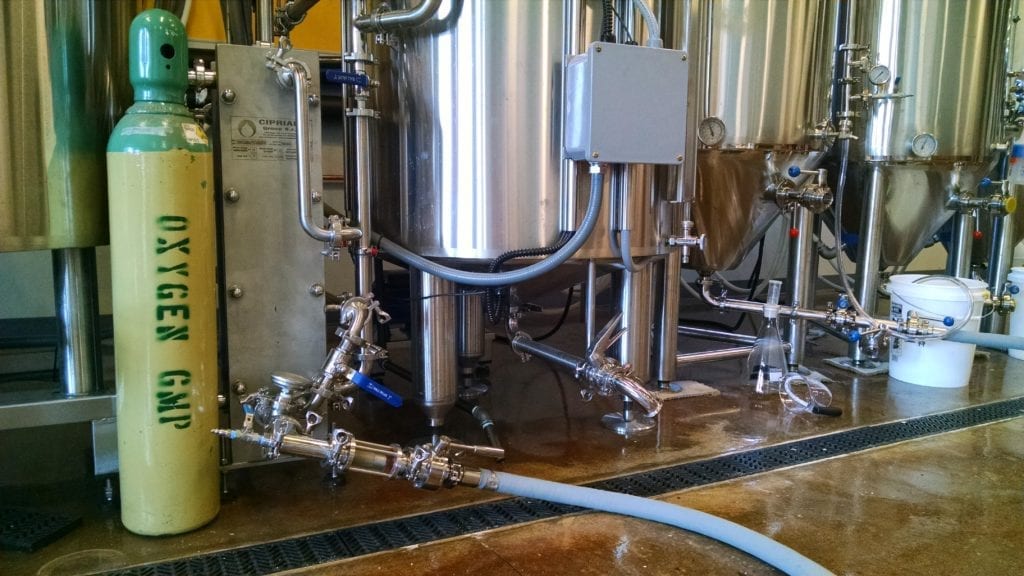 A new brewery opened in the Lehigh Valley this fall. Yergey Brewing, owned and operated by Jim Yergey, is a nano-brewery specializing in strong ales and stouts.
A new brewery opened in the Lehigh Valley this fall. Yergey Brewing, owned and operated by Jim Yergey, is a nano-brewery specializing in strong ales and stouts.
I visited the opening weekend to sample some of the eight beers on tap. Yergey Brewing opened with a solid offering that includes three IPAs, three stouts and a Belgian strong ale. Only one beer – the LV’s Hoppin’ session IPA – comes in less than 6% ABV.
While I found the session IPA surprisingly delicious, my tastes ultimately gravitate toward stouts, particularly the “Hot Chocolate” stout. The chocolate stout, infused with habanero extract, has a rich flavor and a little kick that tickles the back of the throat.
One thing is for sure: Jim, a retired chemist, has a knack for brewing.
The other reason I’m so excited about this brewery is because I helped design its drains!
I had the opportunity to visit the site firsthand and see how Jim planned to set up the brewery. We decided the trench drains should run in front of the tanks then turn a corner and run behind the bar. We tackled the corner by separating the drain into two runs connected by a PVC elbow.
Jim designed the limited space with the brewhouse set along one wall. This configuration guarantees no pallet jacks or forklifts could drive over the drain. Since traffic wasn’t a concern, Jim decided to use a light duty thermoplastic grate that is designed for pedestrian traffic and higher temperatures.
But he had additional considerations:
- price
- temperature
- debris/particles
As with all upstart projects, money is a treasured commodity. With stainless brewery drains costing $200-$300 per foot, Jim chose the polymer concrete drain.
Temperature was the next issue. Brewery wastewater can get hot! A standard polymer concrete drain is made with aggregate and a polyester resin. Polyester drains are rated for 120-140°F temperatures; a continual use test (submerged for seven days without losing integrity) sets the system at 120°F.
Specialty polymer concrete is made from vinylester resin. These drains are rated for 180°F continual usage. The material is often specified for EPA containment. That’s heavy duty! While it may seem overkill for your brewery, here’s a good test;
- are you dumping wastewater directly into the drain or running it over the floor first? Piping the water directly into the drain doesn’t leave much time for the water to cool.
- are you leaving time for cleaning water to cool prior to dumping the liquid?
Yergey Brewing’s limited space doesn’t leave room to run water across the floor – especially since most of the space is actually seating. So we decided that a hose would run directly into the drains and to use vinyl ester drains to be safe.

Another concern Jim had was debris in the wastewater. Some municipalities already require in-house water treatment or solids filtration before the water hits the treatment plant.
We decided to make it easier for the WTP by installing a catch basin and sediment basket to separate large particles. Catch basins come in several sizes, which vary slightly depending on whether the system is measured in metric or standard measurements. Jim chose an in-line basin capable of holding up to 11 gallons.

Bottom line: a trench drain should be as unique as your brewery. What works for one brewery won’t work for another. It’s a small aspect of the total operation, but one that will carry your passion project forward for years to come.


